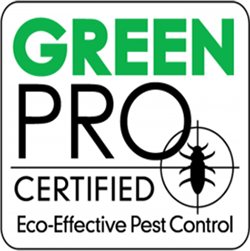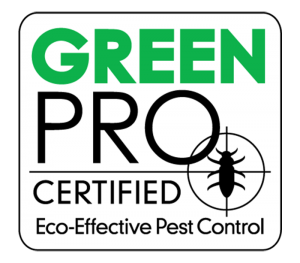The Difference Between Good and Bad Insects
ExpiredSpring is right around the corner, which means if you’re a gardener or outdoor enthusiast, it’s time to start planning out your springtime garden. One of the first things you should consider before beginning your garden is the difference between which insects are beneficial and those that are harmful when found in your garden. The Spence’s Pest Control team has put together this article to help you understand which insects should be welcome in your garden this coming spring.
The Bad
Aphids: These soft-bodied insects may be small, but they pose a serious threat to your garden and your home. Aphids feed on the sap within plants, and in extreme cases, can pull so much sap out of a plant that the leaves wilt and the entire plant dies. Their feeding can also cause deformed flowers and fruits. Another harmful effect of aphids is the sugary liquid waste they produce called “honeydew,” which attracts other insects to the plant the aphid was feeding on. The deposits of this waste left behind by aphids can also grow a fungus called sooty mold that can cause plant leaves to become covered in a dark, black coating. Aphids also often carry vectors that may result in the collapse of your garden altogether.
If you have an aphid problem in your garden, you’re likely to start noticing an issue on your vehicle and on the exterior of your home. The “honeydew” waste can cause staining and can also cause sooty mold to grow on these surfaces just as it does on plant matter. This will leave a black coating on your vehicle and any surfaces on the exterior of your home.
Earwigs: These creepy creatures are best known for the forceps on the back of their abdomen. These intimidating little insects can cause damage to your garden by feeding on flowers, vegetation, fruits, and vegetables. They can also pinch humans with their forceps but are not venomous. To keep them out of your garden, keep it clean. Make sure there is no debris or stones for them to hide under. By keeping a clean garden, you can avoid an earwig problem or eliminate an existing one.
Earwigs are known to get into residences and take shelter in basements and crawl spaces. Earwigs are attracted to dark, damp spaces so if you have any in your home, you may have an underlying moisture issue. While they do not cause immediate damage to your home, an infestation can grow over time.
Termites: These notorious, wood-eating insects are an unwelcome sight for gardeners and homeowners alike. Termites can cause severe damage to your garden by chomping their way through your mulching. Mulch is vital for keeping plants warm and for insulating plant roots from the sun’s powerful rays. If you have raised beds, termites can eat right through the wooden dividers that separate your different plant beds.
If your garden is close to your home, or if you have a mulch or wood debris pile that is close to your home, you are at risk of a termite infestation in your home. These hungry insects can cause very expensive structural damage to your home. If you already have a termite problem in your garden, it can easily spread to your home. Learn more about our termite services here.
The Good
Ladybugs: These pretty, spotted beetles are known for their appearance and are beloved by children and parents alike. These small insects make a great addition to your garden because they not only bring a pop of vibrant, red color, but their primary food source is aphids. As we’ve seen already, aphids are very harmful insects that can destroy your entire garden and damage your property. If you spot a few ladybugs in your garden, fret not. They serve a great purpose in helping keep unwanted pests at bay.
While these bugs aren’t on our “bad” list, if they get inside the home, they can breed and start an infestation. Make sure all windows and doors are properly sealed so that insects cannot enter easily. Sometimes infestations are unavoidable, and that’s why our team is just one call or click away!
 Bees: While many are afraid of bees because of their sting, these creatures are vital for the health of your garden. Bees are important for the pollination of your plants. If you grow flowers, in particular, bees help cross-pollinate plants, causing them to produce more seeds. Without them, many of the staples in your garden would not return year after year.
Bees: While many are afraid of bees because of their sting, these creatures are vital for the health of your garden. Bees are important for the pollination of your plants. If you grow flowers, in particular, bees help cross-pollinate plants, causing them to produce more seeds. Without them, many of the staples in your garden would not return year after year.
If you have a hive that’s a little too close for comfort, it is possible to have hives moved by professionals. In this process, the queen is removed from the hive and transferred into a temporary hive. The other bees then follow and the hive is transported to a new location. If there is a hive on your property that is a safe distance from your home, consider leaving it alone so that the bees can enjoy your garden as much as you do.
Praying Mantis: Praying mantises can be great in the garden because they help control the population of other insects. One reason they are beneficial is that they are large enough to hunt damaging insects like grasshoppers and caterpillars. The only issue with these slender-bodied insects is that they have little discrepancy when it comes to hunting. They will eat virtually any insect that they come across, both good and bad.
While some of these pests are more welcome than others, it’s important to remember that when any insect takes hold of your home, you should contact a pest control specialist right away. The entire Spence’s Pest Control team is always ready to help address an infestation. Contact us at (804) 794-7738 or schedule an inspection. Our team will eliminate the problem and help you avoid any issues in the future.












